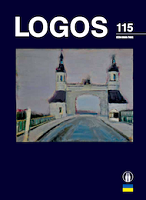Moderniosios jaunimo politikos strategijos: nuo Gosta’os Espingo-Anderseno gerovės valstybės teorijos prie įgalinimo praktikos
Modern Youth Policy Strategies: From Gosta Esping-Andersen's Welfare State Theory to the Practice of Empowerment
Author(s): Leta DromantienėSubject(s): Welfare systems, Politics and society, Social development
Published by: Visuomeninė organizacija »LOGOS«
Keywords: youth; welfare state; youth policy strategies; empowerment; active citizenship;
Summary/Abstract: The article proposes the idea that new EU Youth Strategy (2018), which emphasizes the challenges of empowering young people and strengthening their active citizenship, has led to a new perspective on youth policy in the welfare state, aimed at alleviating and preventing social problems. Although international studies of the determinants of social well-being by economists, sociologists, historians, and political scientists still integrate the perspective of Gøsta Esping-Andersen's welfare state models (1990), the typology of welfare states presented in it is increasingly lacking. The paradigm of the welfare state changes from supporting individual social groups to empowering them by realizing the primary purpose of the welfare state - to guarantee a dignified livelihood for each of its members. The demographic and socio-economic trends of current society are changing the way young people live their lives; their perception of the role and challenges for young people as a large part of society, and their own policies, which are making their voices heard more and more. Therefore, it is important to study youth policy and well-being not as an integral part of individual social policies of the welfare state (family, employment, poverty reduction, etc.) but as an independent policy, the success of which is determined by the chosen strategies.
Journal: LOGOS - A Journal of Religion, Philosophy, Comparative Cultural Studies and Art
- Issue Year: 2023
- Issue No: 115
- Page Range: 56-66
- Page Count: 11
- Language: Lithuanian

